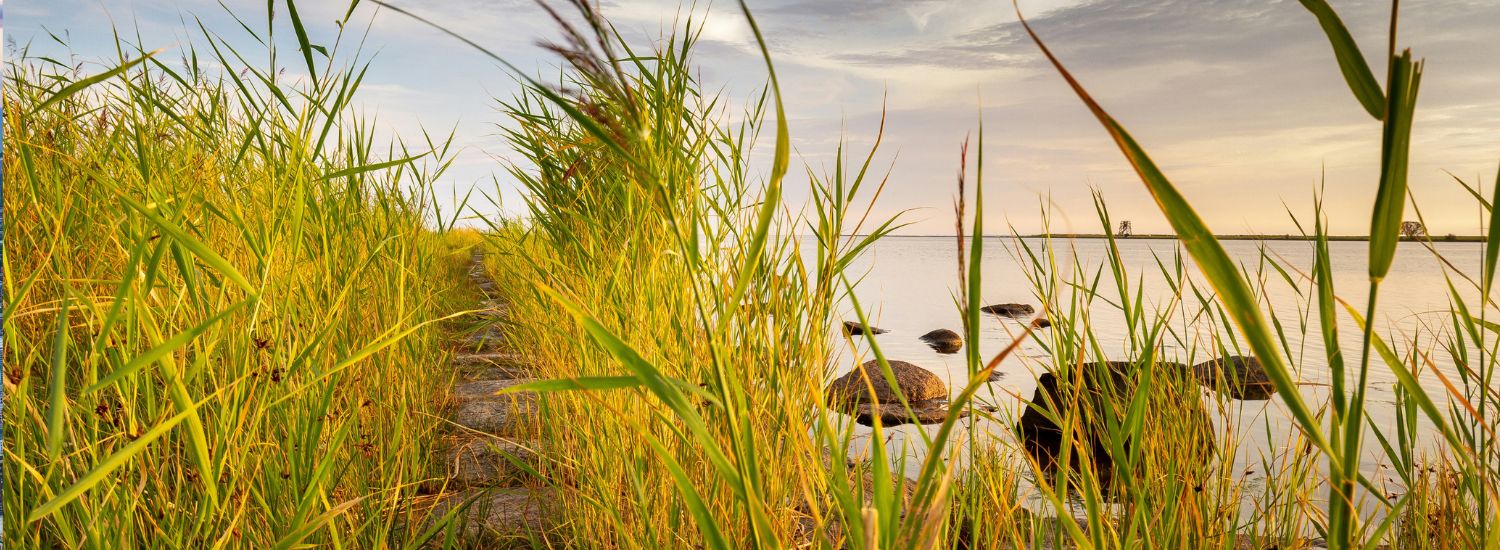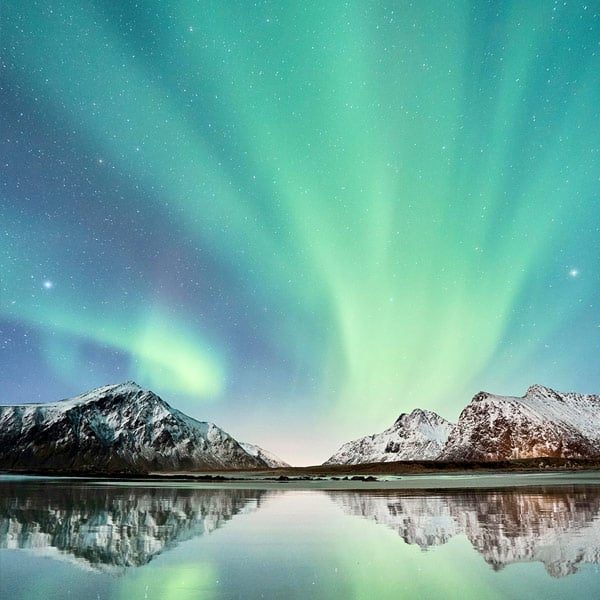Before packing, check this list of items prohibited from entering a particular country or region.
Key takeaways
- The cleanest country in the world is Estonia, according World Population Review's Cleanest Countries in the World 2026.
- The most sustainable countries include Honduras, Moldova, Norway, Sweden, New Zealand, and the UK, based on varying environmental, social and economic factors.
- The cleanest city in the world is Zurich, Switzerland, according to global consulting firm Mercer's latest Quality of Living City Ranking.
- The countries with the cleanest water are Finland, Germany, Greece, Ireland, Italy, Switzerland, the UK and the USA, according to the EPI's latest rankings for unsafe drinking water quality.
What is the cleanest country in the world?
The cleanest country in the world is Estonia, according to World Population Review's Cleanest Countries in the World 2026. World Population Review based their results on the Environmental Performance Index (EPI) - a collaboration between Yale and Columbia universities and the global think tank, the World Economic Forum (WEF). It ranks one hundred and eighty countries based on fifty-eight indicators, focusing on environmental health, ecosystem vitality and climate change. Indicators include air quality, water sanitation, CO₂ levels and marine habitat protection.
Estonia achieved a score of 75.7 out of 100. Over the last ten years, the Baltic state has consistently ranked in the top thirty, with recent improvements due to advancements in air quality, waste management and the protection of natural habitats.
Other countries in the top ten include Luxembourg (75.1), Germany (74.5), Finland (73.8), the United Kingdom (72.6), Sweden (70.3), Norway (69.9), Austria (68.9), Switzerland (67.8), and Denmark (67.7).
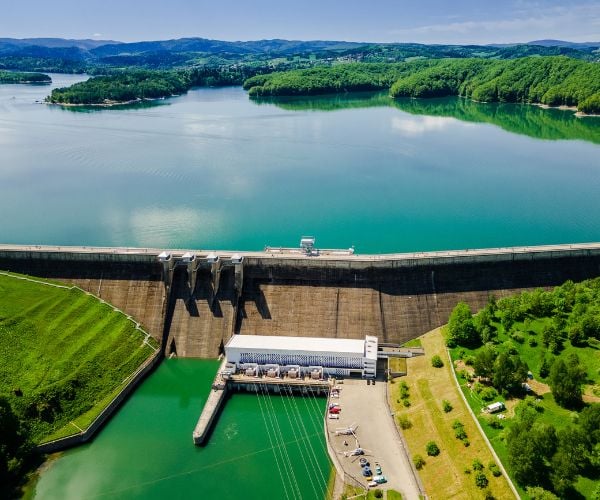
Most sustainable countries
The most sustainable countries are Honduras, Moldova, Norway, Sweden, New Zealand, and the UK, based on varying environmental, social and economic factors.
A recent study on industrial practices by boilercoverUK reports that Honduras has the lowest CO₂ emissions per capita worldwide, followed by Guatemala, the Philippines, Moldova and Bolivia. Emissions in Honduras are low due to limited industrial activity, a reliance on renewable energy, such as hydropower, and a less developed transportation infrastructure.
Moldova scored high again, coming in first for the best agricultural practices. The Eastern European nation uses one of the lowest amounts of nitrogen fertiliser, at just 27.56 kg per hectare. Nitrogen fertilisers emit nitrous oxide, which worsens global warming. In contrast, the Netherlands uses a whopping 205.73 Kg per hectare.
Based on the 2025 Hinrich-IMD Sustainable Trade Index (STI), New Zealand and the United Kingdom are the top two most economically sustainable countries. New Zealand leads the rankings thanks to a balanced approach to economic growth, societal well-being and environmental stewardship. The United Kingdom ranks second by demonstrating sustainable trade practices and innovation in green technologies to strengthen its long-term sustainability.
![]()
How to be a sustainable traveller
To be a sustainable traveller, make conscious choices that minimise your environmental impact, such as reducing air travel, opting for zero-carbon transport, staying in eco-friendly accommodation, shopping and eating local, respecting wildlife and switching to reusable bottles, bags and utensils.
By adopting these practices, you can protect the environment while enriching your overseas experience and contributing to the well-being of the communities you visit.
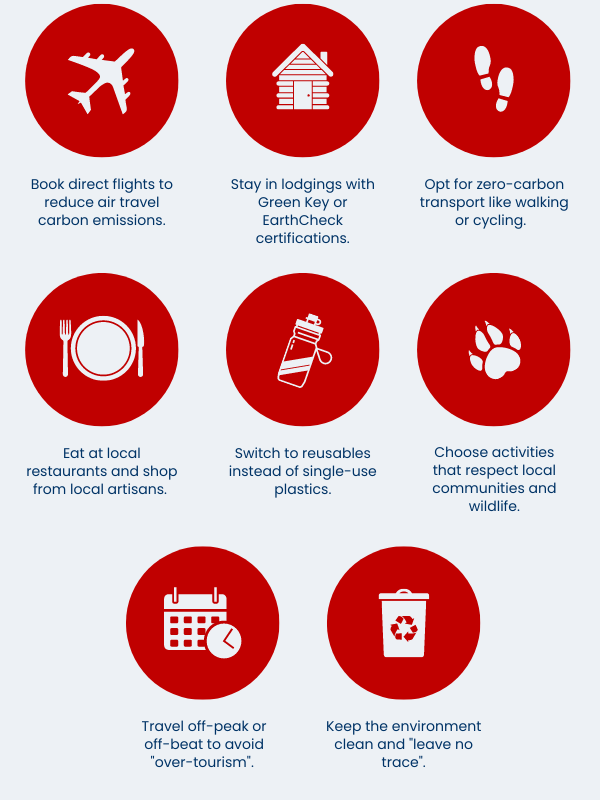
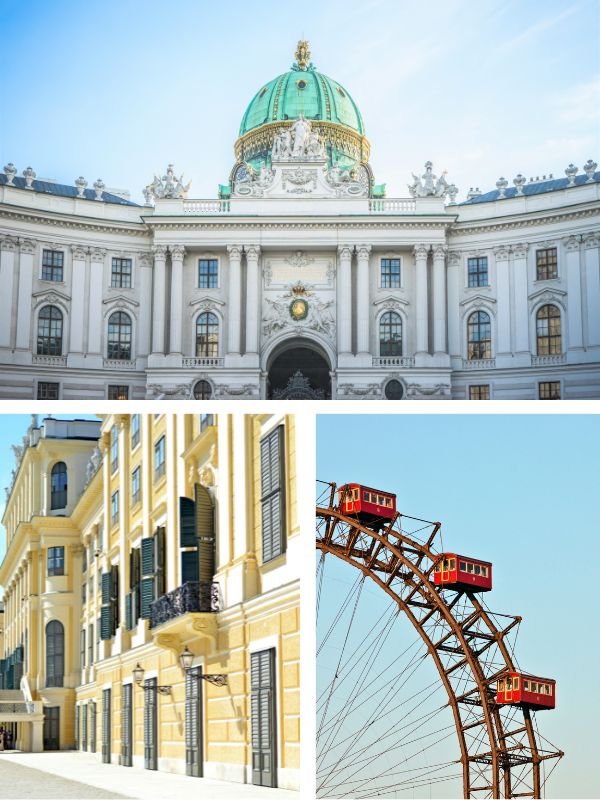
Zurich benefits from high-quality drinking water sourced from the surrounding Alpine region...
Cleanest city in the world
The cleanest city in the world is Zurich, Switzerland, according to global consulting firm Mercer's recent Quality of Living City Ranking. The Eco-City Ranking evaluates cities worldwide based on sustainability, focusing on air quality, waste management, water availability, and parks.
Zurich consistently ranks among the world's most sustainable cities, reflecting its comprehensive approach to environmental management and urban planning. The city's commitment to sustainability encompasses several key areas:
Air quality: the Swiss capital maintains high air quality, supported by strict emissions regulations and reliable public transport. The city also promotes cycling and pedestrian-friendly streets, reducing reliance on private vehicles.
Waste management: Zurich's waste management system minimises landfill use and promotes recycling. Residents actively participate in waste separation, contributing to the city's high recycling rates.
Water management: Zurich benefits from high-quality drinking water sourced from the surrounding Alpine region. The city's water infrastructure ensures reliable access to clean water for its residents.
Green spaces: Zurich is renowned for its abundant green spaces. Initiatives like green roofs and sustainable landscaping practices contribute to biodiversity and the well-being of residents.
What country has the cleanest water?
The countries that have the cleanest water are Finland, Germany, Greece, Ireland, Italy, Switzerland, the UK and the USA, according to the EPI's latest rankings for unsafe drinking water quality. The EPI measures hazardous drinking water by looking at how many years of healthy life are lost, on average, per 100,000 people due to unsafe water. A score of 100 means the country has one of the lowest rates of health problems caused by unsafe water, while a score of 0 means it has one of the highest. Each of the top eight countries scored 100. Close runner-ups were Norway (99.9), Luxemburg (99.8), Canada (99.7), Iceland (99.4), and Australia (99.2).
Based on overall sustainable water resources, Luxembourg tops the list with a score of 90.6, closely followed by Singapore at 90.5. The indicators used were wastewater generated, collected, treated and reused. Luxembourg's success stems from its strict water pollution regulations and advanced wastewater treatment infrastructure. Despite limited natural resources, Singapore has developed a highly efficient water management system, including its innovative NEWater program, which recycles wastewater.
What country has the cleanest air?
The country that has the cleanest air is Iceland, according to a Backroad Planet's 2026 report. The island nation's excellent air quality is due to its very low population density, limited heavy industry, and geographic isolation. Iceland relies almost entirely on renewable energy, particularly geothermal and hydropower.

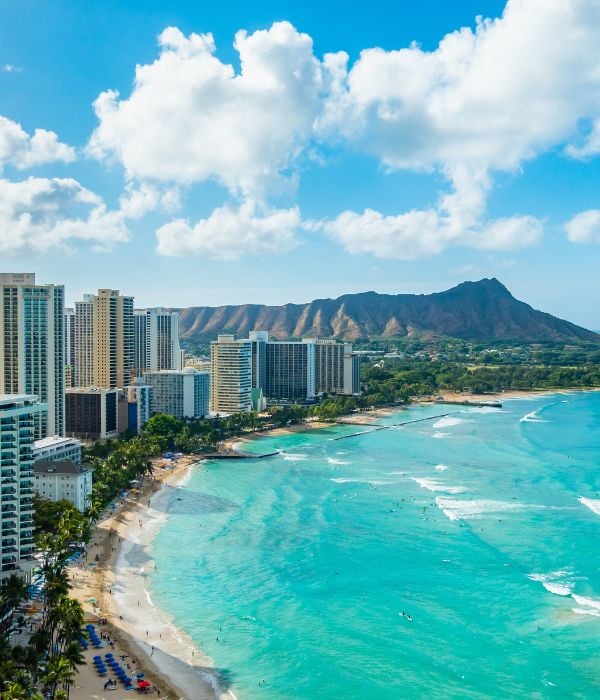
Interestingly, only seven countries worldwide, the rest being Australia, Estonia, Finland, Grenada, Iceland and Mauritius, meet the World Health Organization's (WHO) air quality standards for PM2.5 (particle matter 2.5 micrometres or smaller) released from vehicles and industry that can cause severe health issues. Despite global improvements in air quality in recent decades, dangerous pollution levels persist, with Pakistan, India and Tajikistan among the most contaminated.
Best air quality in the US
The cities with the best air quality in the US are Honolulu, Hawaii, and Casper, Wyoming, according to a State of the Air 2025 report by the American Lung Association (ALA). The report's findings are based on the cleanest US cities by year-round particle pollution, using the new, more protective Environmental Protection Agency (EPA) air quality standards for fine particulate matter.
Honolulu benefits from its remote location, with trade winds helping to disperse pollutants. The city's proactive measures to limit vehicle emissions and promote public transportation further enhance its air quality. Preserving green spaces and reducing urban sprawl (uncontrolled expansion into rural areas) help maintain Honolulu's atmospheric purity.
Casper enjoys relatively clean air is thanks to its low population density and limited heavy industry. The city benefits from winds that remove pollutants, and a robust legal framework for air quality. Residents generally face lower exposure to air pollution and associated health risks compared with more urbanised areas.






